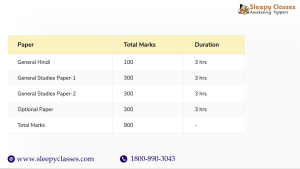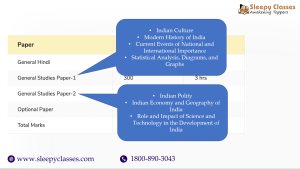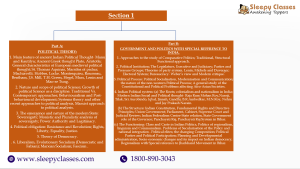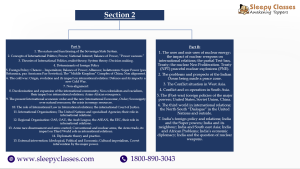BPSC Mains PSIR Optional Syllabus 2022
67th BPSC Mains Optional Strategy- PSIR


BPSC PSIR Optional Syllabus 2022
Section-I
Part-A
POLITICAL THEORY:
1: Main feature of ancient Indian Political thought:
- Manu and Kautilya
- Ancient Greek thought Plato
- Aristotle
- General characteristics of European medieval political thought St. Thomas Aquinas, Marsiglip of Padua; Machiavelli. Hobbes, Locke. Montesq-uien, Rousseau, Bentham, J.S. Mill, T.H.Green, Hegal Marx, Lenin and Mao-se Tung.
2: Nature and Scope of Political Science; Growth of Political Science as a discipline. Traditional Vs. Contemporary approaches; Behaviorism and Post-behavioural development; Systems theory and other recent approaches to political analysis, Marxist approach to political analysis.
3: The emergence and nature of the Modern State:
- Sovereignty
- Monistic and Pluralistic analysis of sovereignty
- Power Authority and Legitimacy
4: Political obligation:
- Resistance and Revolution.
- Rights
- Liberty
- Equality
- Justice
5: Theory of Democracy
6: Liberalism, Evolutionary Socialism (Democratic and Febian); Marxian Socialism; Fascism.
➡️To Join our BPSC PSIR Test Series: Click Here!

Part- B
GOVERNMENT AND POLITICS WITH SPECIAL REFERENCE TO INDIA
1: Approaches to the study of Comparative Politics:
- Traditional, Structural Functional approach.
2: Political Institution:
- The Legislature, Executive, and Judiciary
- Parties and Pressure Groups
- Theories of the party system. Lenin, Michels, and Duverger
- Electoral System Bureaucracy- weber’s view and Modern critiques of weber
3: Political Process:
- Political Socialisation, Moderncation, and Communication
- The nature of the non-western Political Process
- A general study of the Constitutional and Political Problems affecting Afro-Asian Societies
4: Indian Political system:
- The Roots
- Colonialism and nationalism in India
- A general Study of modern Indian Social and Political thought, Raja Ram Mohan Roy, Dadabhai Nauroji, Tilak, Sri Aurobindo, Iqbal, Jinnah, Gandhi, B.R.Ambedkar, M.N.Roy, Nehru and Jay Prakash Narain.
(b) The Structure:
- Indian Constitution
- Fundamental Rights, and Directive Principles
- Union Government.
- Parliament, Cabinet, Supreme Court, and Judicial Review
- Indian Federalism Centre-State relation, State Government role of the Governor
- Panchayati Raj, Panchayati Raj System in Bihar
(c) The Functioning:
- Class and Caste in Indian Politics, Politics of regionalism, linguism, and Communalism
- Problems of Secularcation of the Policy and national integration
- Political elites
- The changing Composition
- Political Parties and Political Participation
- Planning and Developmental administration, Socio-economic changes and its impact on Indian democracy, Regionalism with Special reference to Jharkhand Movement in Bihar.
➡️To Join our BPSC PSIR Test Series: Click Here!

Section- II
PART-I
1: The nature and functioning of the Sovereignation State System.
2: Concepts of International Politics; Power; National Interest; Balance of Power, “Power vacuum.”
3: Theories of International Politics.
4: Determinants of foreign policy:
- National Interest
- Ideology
- Elements of National Power (including nature of domestic socio-political institution).
5: Foreign Policy:
- Choices – Imperialism
- Balance of Power
- Alleg hances
- Isolationism: Nationalistic Universalism (pax Britannica pax Americana Pax-Sovietica), The “Middle Kingdom” Complex of China, Nonalignment.
6: The cold war:
- Origin, and its impact on international relation
- Defence and its impacts: a new Cold War.
7: Non-alignment:
- HEANING Bases (National and International) the non-aligned Movement and its role in international relations
8: De-coloncation and expansion of the international community; Neo-colonialism and racialism, their impact on international relations; Asian-African resurgence.
9: The existing international economic order; Aid trade and economic development, the struggle for the new International Economic, Order; Supremacy over natural resources; the crisis in energy resources.
10: The International Law in International relations role; the international Court of Justice.
11: Origin and Development of International Organisations
- The United Nations and Specialized Agencies
- Their role in international relations.
12: Regional Organcation: OAS, OAU, the Arab League, the ASEAN, the EEC, their role in international relations.
13: Arms race disqualification and arms control; Standard and nuclear arms, the Arms trade, its impact on Third World role in international relations.
14: Diplomatic theory and practice.
15: External intervention:
- Ideological, Political, and Economic
- Cultural imperialism, Covert intervention by the major power
➡️To Join our BPSC PSIR Test Series: Click Here!

PART-II
1: The uses and misuses of nuclear energy; the impact of nuclear weapons on international relations; the partial Test-ban, Treaty; the nuclear Neo-Proliferation. Treaty (NPT) peaceful nuclear explosions (PNE).
2: The obstacles and prospects of the Indian Ocean being made a calm zone.
3: The Conflict situation in West Asia.
4: Conflict and co-operation in South Asia.
5: The (Post-war) foreign policies of the major powers; the United States, Soviet Union, China.
6: The third world in international relations
- The North-South “Dialogue” in the United Nations and outside.
7: India’s foreign policy and relations; India and the Superpowers; India and it’s neighbor; India and Southeast Asia; India and African Problems; India’s economic diplomacy; India and the question of nuclear weapons.
➡️To Join our BPSC PSIR Test Series: Click Here!
➡️State PCS 2023 Courses: https://sleepyclasses.com/statepcs/
➡️UPSC 2023 General Studies Course: https://sleepyclasses.com/general-studies-for-upsc/
➡️Sociology Optional for UPSC : https://sleepyclasses.com/sociology-for-upsc/
➡️Political Science and IR for UPSC: https://sleepyclasses.com/psir-for-upsc/
➡️Signup here – https://sleepyclasses.com/
Have any query related to UPSC preparation: 📞Contact Us ► Toll-Free: 1800 890 3043 ► Mobile: 6280133177 ► Email: Sleepy.Classes@gmail.com ► WhatsApp: 6280133177



